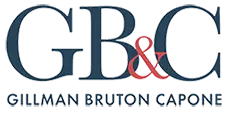Careful planning before filing a bankruptcy petition often determines the outcome of the proceeding. For this reason, mammoth corporations and individuals who have very substantial assets devote as much time to planning for a bankruptcy filing as they do for another important business decision. In fact – because bankruptcy is frequently the most important business decision they will ever make – they may spend more time planning for bankruptcy than on any other matter. The most publicized example of this was the General Motors Chapter 11 Bankruptcy filing. The Wikipedia article describing the proceeding references 96 footnotes.
Unfortunately, many of the individuals and small businesses experiencing serious debt problems who we have represented have done no planning at all prior to our being consulted long after their circumstances made it plain that they needed to seek debt relief. Instead they lurched from self delusional optimism to morbid pessimism, and, in some cases, to compulsive reading of purported remedies on the internet. By not treating filing a bankruptcy as a business decision which needs to be planned and timed, they have reduced the remedies available to them.
A recent study, “Robbing Peter to Pay Paul”: Economic and Cultural Explanations for How Lower-Income Families Manage Debt by Laura M. Tach and Sara Sternberg Greene, provides an example of how emotion and a crude self-defeating morality result in the same counter-productive conduct we have observed. The study found that debtors who do not have enough income to pay all of their creditors frequently make decisions about who to pay based upon emotion rather than reason. One example discussed in the study is that debtors often make payments on low-interest credit cards because they consider the payments fair and ignore high-interest payments because they perceive the lender being unfair.
Some other examples we have observed of emotional rather than reasonable behavior by those experiencing serious debt problems are making minimum payments to credit card lenders and small payments to debt collectors by debtors who are being harassed.
More serious examples of the failure to plan after exploring all available remedies are:
- Homeowners who withdraw funds from a retirement account to bring mortgage payments current without first consulting an attorney about the other ways to prevent foreclosure, and those who make payments on a home equity loan when they are seriously delinquent on their first mortgage and have no realistic chance of curing the arrears.
- Withdrawing funds from retirement savings account results in serious and, in most cases, entirely negative consequences. In addition to paying income taxes on the funds that are withdrawn, there is a 10% tax penalty on the amount of the funds.
EXAMPLE: Dan Debtor who was unemployed for six months is delinquent because of his first mortgage and must pay $40,000.00 to bring the mortgage current.
Dan withdraws $40,000.00 from his retirement savings. If the $40,000.00 withdrawal put him in the 20% tax bracket, he will pay $8,000.00 in Federal Income Taxes plus a penalty of $4,000.00 – a total of $12,000.00 plus interest that would accrue on the total amount. If Dan had consulted an attorney before making the withdrawal, he might have learned that he was eligible to file a Chapter 13 Bankruptcy Petition and a repayment plan which would have allowed him to repay the arrears on his mortgage over a period of 60 months at no interest. Dan would have to pay the Chapter 13 Bankruptcy Trustee 10% of $40,000.00 which equals $4,000.00 (plus Trustee commission) and approximate $4,000.00 in attorney fees and cost.
Dan would therefore have saved approximately $4,000.00, preserved his retirement savings and the interest on his savings; avoided non-dischargable Federal Income Tax and the interest on the tax, and operated under the protection of the Bankruptcy Court during the period of the Chapter 13 Bankruptcy Plan. Dan may also have been able to discharge some or all of his credit card debt which became delinquent when he was out of work and medical bills for the treatments he needed when he was uncovered by insurance or the deductible on the insurance.
But Dan didn’t know about any of the choices he could have made because instead of consulting a bankruptcy attorney, he did what made him feel better – or less worse – at that moment.
EXAMPLE: Fran Frantic is also delinquent on the mortgage and home equity loan on her home. She and her partner recently separated and her income is insufficient to make the payments. She has purchased a lottery ticket and thinks that if she wins she can pay off her debts. Other than her hope, there is no way she is going to be able to make the payments on her home.
Because it makes her feel better, she continues to make the payments on her home equity loan. It would be more realistic for her to buy lottery tickets with the money she is paying on the home equity loan. Better yet, she should save her money for moving expenses and consult an expert bankruptcy attorney about possibly filing a Chapter 7 Consumer Bankruptcy. Filing a Chapter 7 Bankruptcy would also avoid the possibility that the home equity lender will seek payment from her on the note and would also discharge debts she may have and cannot pay.
Those homeowners who are facing serious debt problems or are threatened with foreclosure should make a reasonable decision and seek the advice of an attorney about the laws that protect them and the legal remedies available to them.


